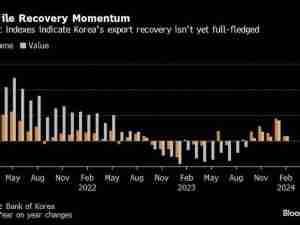Brad Setser, an adviser to U.S. Trade Representative Katherine Tai who’s called for cracking down on countries seen as undervaluing their currencies, is leaving the Biden administration.
Setser, who was appointed in February 2021, is returning to the Council on Foreign Relations, the New York-based think tank said on Monday.
Setser’s “insight and intellect have been a tremendous asset to USTR in our first year,” Tai said in an emailed statement to Bloomberg News. “I will always appreciate his willingness to return to public service and the counsel he provided as we developed the Biden-Harris Administration’s new approach to trade policy.”
Setser declined to comment when reached by phone Tuesday.
Before joining the USTR, Setser spent the previous five years as a senior fellow at the New York-based think tank, where he wrote the “Follow the Money” blog, analyzing global capital flows to discuss issues including Puerto Rico’s debt and Taiwan’s foreign-exchange reserves. Setser also previously served as an official at the Treasury Department from 2011 to 2015.
“Brad is one of the country’s most highly respected analysts of global capital flows, national tax competition, and trade imbalances,” James M. Lindsay, senior vice president and director of studies at CFR, said in a statement. “We are delighted to welcome him back.”
In 2019, Setser called on the U.S. government to subject economies with large trade surpluses to close scrutiny on whether they were intervening to keep their currencies undervalued—with the willingness to enact “meaningful penalties for persistent manipulation.”
“Small countries that have intervened excessively in the recent past would face immediate pressure to change their policies, and large countries like China that once intervened heavily would be put on notice,” Setser wrote in a CFR memo.
The Biden administration has kept tariffs on more than $300 billion in imports from China imposed during Donald Trump’s administration, but held off on launching a new investigation of the country’s trade practices under Section 301 of the Trade Act of 1974—the statute used to impose the duties.
Some trade observers had speculated that Setser’s appointment at the USTR would lead to the agency taking a greater and more aggressive role in addressing unfair currency practices—usually the purview of Treasury. But in the most prominent case featuring currency issues, the Treasury negotiated with Vietnam’s central bank to reach an agreement allowing more flexibility in its currency. The U.S. held off on imposing tariffs on Vietnam, a possibility raised under Trump.
In its latest report to Congress in December, the Treasury didn’t designate any economy as a currency manipulator, though it did name China, Vietnam and Taiwan as trading partners that have failed to live up to global agreements not to use their currencies to obtain unfair trade advantages. The Biden administration overall has taken a less aggressive approach to the twice-yearly currency review than during the Trump administration.







